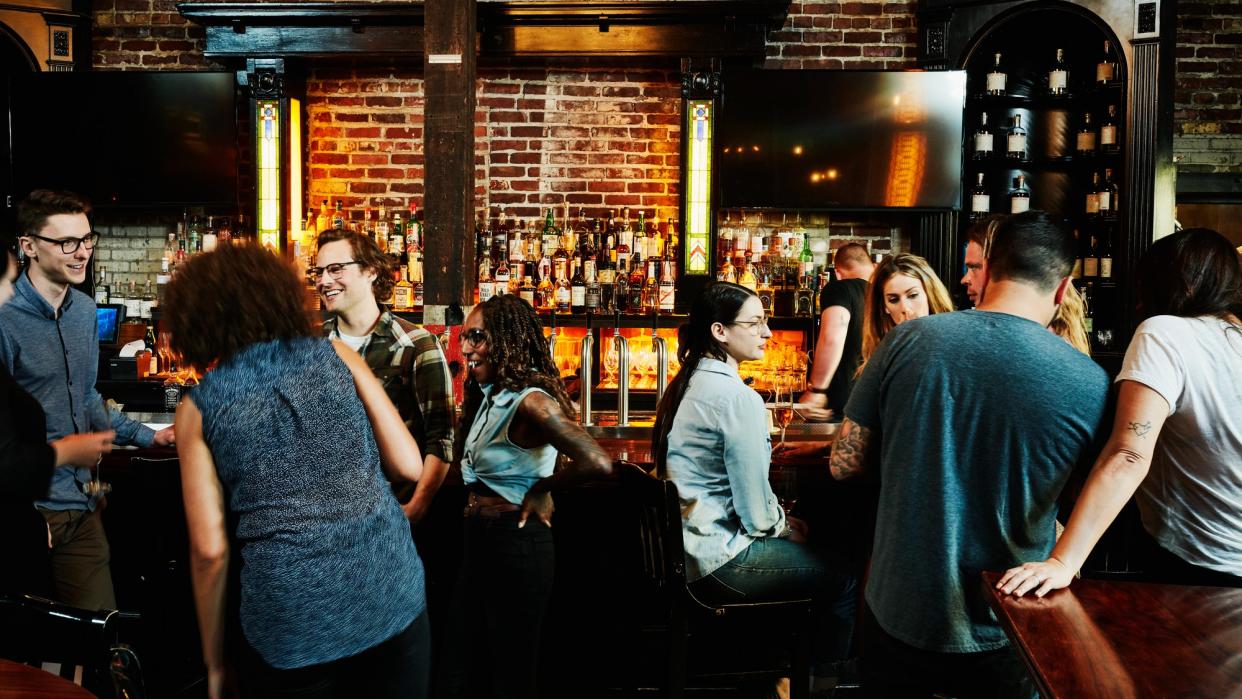The unfortunate, ongoing disappearance of 'third places'

Where do you go if you are not at school, work or home? For some, the answer is, well, nowhere. With the growing cost of living, the prevalence of social media and the residual social-distancing mentality from the pandemic years, third places, or locations designed for socialization, have largely disappeared. This dearth of once-common shared spaces is increasing loneliness, especially among youth.
Why are third places disappearing?
Society is losing its places to chill. Third places or "spaces that are neither home nor work, but locations somewhere in-between," locations where we "would bump into acquaintances; interact with strangers (or, admittedly, eavesdrop on them); and chat with friends, percolating ideas and plans," said the BBC. Some examples include coffee shops, libraries, bars and parks. While these places have served important purposes, their presence is becoming rarer. "For decades, Americans reported spending about 6.5 hours a week with friends. But from 2014 to 2019, it suddenly dropped by 37%, to four hours a week," said Insider.
Much of the shift can be attributed to the rise of social media and, more recently, social-distancing measures. "Our relationships and responsibilities used to be easily compartmentalized: the intimate pieces at home and the professional at work," the BBC said. However, following the pandemic, the "two sides folded into each other," and "with our favorite hangouts banned, we've been stuck in environments that we equate only with work – either professional labor or domestic labor, with no place to let off steam or get some respite."
In addition, "now we have on-demand streaming, and social media, which are further extensions of that fundamental shift," Robert Putnam, author of Bowling Alone, said to The Atlantic. Some argue that the internet itself has become a third place. Nonetheless, a lack of human connection has spawned a loneliness epidemic. "It's a strange paradox, Gen-Z are hyperconnected in the virtual world but socially disconnected," said Forbes. "The internet, mobile phones and video games have opened a multiverse of new connections and opportunities. Yet digital interactions have failed to replace the need to connect on an emotional level in the physical world."
How have third places shifted over time?
The systematic restructuring of cities has greatly affected social spaces. "If you look at most major American cities, you see pretty extreme segregation between wealthy communities and poor communities," Sen. Tina Smith (D-Minn.) said to Insider. "Wealthy people live in places where they can have big gated houses and their own swimming pool and their own private park." In contrast, lower-income and "even middle-class families find themselves living in places where there aren't enough trees, there aren't enough public spaces … whether it be the local swimming pool or the local park."
With the shift, the limited third places have also become less conducive to just hanging out. Many spaces, like coffee shops, are "either too expensive for the average American or apparently designed to disincentivize lingering," said The Atlantic. This is the "consequence of a culture obsessed with productivity and status, whose subjects might have decent incomes but little recreational time." Because many Americans are working much longer work weeks, the time to solely relax and catch up can dwindle.
The movement towards suburbia changed third places as well. "As American cities were reshaped around the car in the early 20th century, streets became a lot less welcoming," said Insider. "Cars also brought suburbia, sprawl, highways that slashed through neighborhoods and an environment that made it easier to isolate yourself in a private vehicle than walk, bike or take mass transit." Suburbia also emphasized the nuclear family, with many people opting to spend time at home with close relatives rather than venture to third places to socialize.
Still, all is not lost. Third places do remain and making the effort to visit the existing third places will likely help create demand for more of them. "Socializing is a learned skill, but the last time we learned it we were probably little kids," Kathy Giuffre, a professor at Colorado College, said to The Atlantic. "So be kind to yourself, because you might be out of practice."